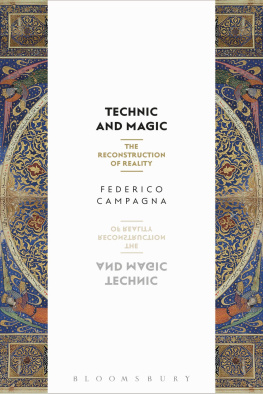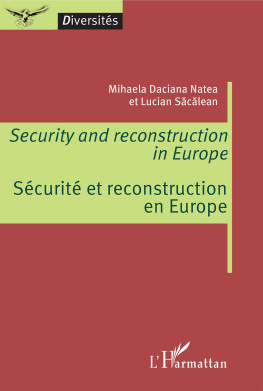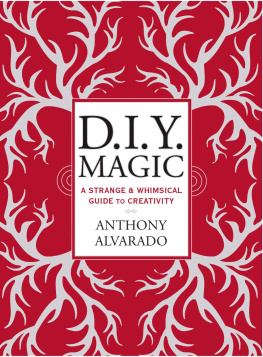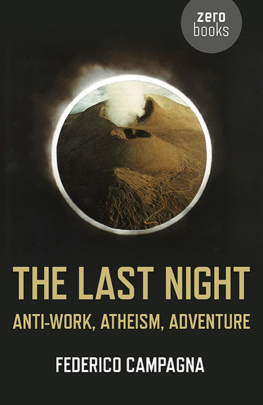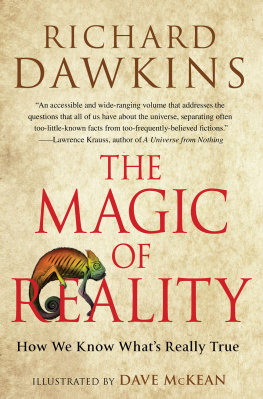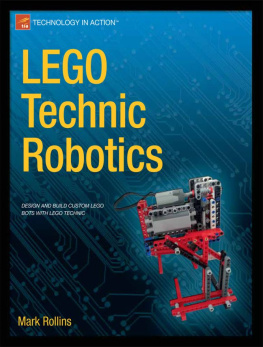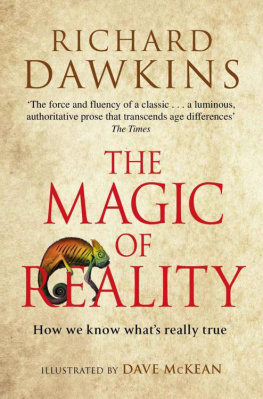Campagna - Technic and magic: the reconstruction of reality
Here you can read online Campagna - Technic and magic: the reconstruction of reality full text of the book (entire story) in english for free. Download pdf and epub, get meaning, cover and reviews about this ebook. City: London i pozostałe, year: 2019, publisher: Bloomsbury UK;Bloomsbury Academic, genre: Romance novel. Description of the work, (preface) as well as reviews are available. Best literature library LitArk.com created for fans of good reading and offers a wide selection of genres:
Romance novel
Science fiction
Adventure
Detective
Science
History
Home and family
Prose
Art
Politics
Computer
Non-fiction
Religion
Business
Children
Humor
Choose a favorite category and find really read worthwhile books. Enjoy immersion in the world of imagination, feel the emotions of the characters or learn something new for yourself, make an fascinating discovery.
- Book:Technic and magic: the reconstruction of reality
- Author:
- Publisher:Bloomsbury UK;Bloomsbury Academic
- Genre:
- Year:2019
- City:London i pozostałe
- Rating:3 / 5
- Favourites:Add to favourites
- Your mark:
- 60
- 1
- 2
- 3
- 4
- 5
Technic and magic: the reconstruction of reality: summary, description and annotation
We offer to read an annotation, description, summary or preface (depends on what the author of the book "Technic and magic: the reconstruction of reality" wrote himself). If you haven't found the necessary information about the book — write in the comments, we will try to find it.
Campagna: author's other books
Who wrote Technic and magic: the reconstruction of reality? Find out the surname, the name of the author of the book and a list of all author's works by series.
Technic and magic: the reconstruction of reality — read online for free the complete book (whole text) full work
Below is the text of the book, divided by pages. System saving the place of the last page read, allows you to conveniently read the book "Technic and magic: the reconstruction of reality" online for free, without having to search again every time where you left off. Put a bookmark, and you can go to the page where you finished reading at any time.
Font size:
Interval:
Bookmark:

Technic and Magic
Also available from Bloomsbury
The Re-Enchantment of the World , Bernard Stiegler
The Philosophy of Simondon , Pascal Chabot
Lines of Flight , Flix Guattari
How to Sleep , Matthew Fuller
Philosophy and Simulation , Manuel DeLanda
Dust , Michael Marder
Hypnosis Between Science and Magic , Isabelle Stengers
Per Arturo e Teodora
and any journey, any kind of trip,
are only mysticism for beginners,
the elementary course, prelude
to a test thats been
postponed.
Adam Zagajewski, Mysticism for Beginners
The Reconstruction of Reality
Technic and Magic
BY FEDERICO CAMPAGNA

Contents

Timothy Morton
How do you get there from here? Like a relentlessly greedy caterpillar that never metamorphoses into a butterfly, the present moment, illusory and specious in all kinds of ways, psychological, anthropological, political, seems to enjoy swallowing the future as fast as new futures are invented. Cynical reason gobbles up this up-gobbling, reproducing the caterpillar in its very attempt to out-caterpillar the gobblers. If I can show you how much more paralyzed you are than you could possibly imagine, I am apparently smarter than you, and more revolutionary than you. I get an extra prize if I can show you how my very way of showing you your extreme and hopeless paralysis is also part of the paralyzing forces, as I reinforce the impossibility of finding an escape route from the present, which very much depends upon sealing off the exits from the very notion of presence that underwrites the present, the notion of going on underneath appearances, the one that unleashed upon Earth the fatal, genocidal sense of the term survive .
Many a critique seems to do a great job of emulating the old man weaving a net around himself in William Blakes illumination of his poem The Human Abstract , a series of lies in the form of the truth:
Pity would be no more
If we did not make somebody Poor;
And Mercy no more could be
If all were as happy as we.
And mutual fear brings peace,
Till the selfish loves increase:
Then Cruelty knits a snare,
And spreads his baits with care.
He sits down with holy fears,
And waters the grounds with tears;
Then Humility takes its root
Underneath his foot.
Soon spreads the dismal shade
Of Mystery over his head;
And the Caterpillar and Fly
Feed on the Mystery.
And it bears the fruit of Deceit,
Ruddy and sweet to eat;
And the Raven his nest has made
In its thickest shade.
The Gods of the earth and sea
Sought thro Nature to find this Tree;
But their search was all in vain:
There grows one in the Human Brain.
When you put it like that, you begin to see the stakes involved in being a writer who wants to change things.
Perhaps then it would be good, if only for a tactical moment, to ignore the blandishments of cynical reason, and the best way to do so would be to ignore the current, which is to say present, state of play regarding philosophy, the conventional reference points. He who controls the past controls the future, as they say, and they who adjust the past hold open all kinds of different futures, and more significantly, they hold open the very possibility of a (different) future as such: futurality. By adjusting chiropractically the spine of the thoughts that got us here, all kinds of there open up, and you start to feel less oppressed by the weight of the past, because within the nightmare you have found some keys to liberate thought from its relentless, nightmarish intensity. Imagine for example that you could look to Neoplatonic and Arabic philosophies to find some magic keys to open the doors of futurality. It might be much more refreshing than rearranging the coloured squares on the mosaic of contemporary theory, which too often results in rearranging the deck chairs on the Titanic of cynical reason.
Federico Campagna has done such a thing. For every door there is a key, and what a delightful surprise that some very old, rusting, gnarly keys from imperial Rome and Persia turn out to fit snugly all kinds of locks that seem to be made of nano-engineered, almost unbreakably encrypted oppression metals.
Notes
W. Blake, The Human Abstract, in The Complete Poems, London: Penguin, 1977, pp. 1289.
This is a book for those who lie defeated by history and by the present. It isnt a manual to turn the current defeat into a future triumph, but a rumour about a passage hidden within the battlefield leading to a forest beyond it.age seems to impact all of us equally. But even though the present had little in store for anybody interested in fostering what used to be called emancipation, perhaps the future still hosted the possibility of a change as-yet to come. As anybody with children, I too didnt want to let go of a however implausible hope for a future, planetary turn in a different direction. And indeed, I too didnt want to renounce the dubious belief that even an individual can always contribute, however marginally, to social transformations on a large scale. Yet, such stubborn hopes didnt silence my doubts. For one, I wondered, what am I to do with myself, while we journey through these gloomy, penultimate times? And secondly, is it really true that a sociopolitical revolution would be sufficient to change the course of the events? Or is it perhaps the case that something else, at a different level, would have to change?
This double questioning a pressing anxiety for my own well-being, and a more theoretical curiosity over the general mechanisms of change led me to consider the problem through another angle. Might it not be the case that change seems impossible, because technically it is impossible? And might it not be the case that imagination, action or even just life or happiness seem impossible, because they are impossible, at least within the present reality- settings? At their core, both questions pointed towards an element within our reality that stood as the ground of the specific cultural/social/political/economic settings of our age. Perhaps, it is at that level, that we implicitly define what is possible and what is impossible within our world. Perhaps, it is at that level, that we decide what is our world. In traditional philosophical parlance, that is the level of metaphysics: the place where it is discussed what it means to exist, what kind of things legitimately exist, how they exist, in what relation they stand to each other and to their attributes and so on. By deciding on metaphysics, that is by deciding on the most fundamental composition of our world, it is implicitly decided what kind of things can or cannot take place in that world. In less specialist parlance, we could say that it is at that level, that reality itself is defined. As the parameters of existence, particularly of legitimate existence, in the world change, so the composition of our world changes and consequently, the range of the possible takes one or another shape, and with it the field of the good, that is ethics, and politics, etc.
It might be objected, of course, that metaphysics should be an exact science, much like hard sciences like chemistry or biology are supposed to be. But this objection would require a belief in our ability, as humans, to apprehend the existent as it authentically is: of approaching facts in their purest, uncompromised form. And, what is more, that we could convey these immaculate facts through descriptive language, as if onto the marble slab of a laboratory or a morgue, so that we could dissect them and acquire from them an authentic knowledge of things as they are. Such a demand on our ability to know and communicate exactly the truth of facts would resemble that placed upon the Man with the Blue Guitar , in Wallace Stevenss poem.
Font size:
Interval:
Bookmark:
Similar books «Technic and magic: the reconstruction of reality»
Look at similar books to Technic and magic: the reconstruction of reality. We have selected literature similar in name and meaning in the hope of providing readers with more options to find new, interesting, not yet read works.
Discussion, reviews of the book Technic and magic: the reconstruction of reality and just readers' own opinions. Leave your comments, write what you think about the work, its meaning or the main characters. Specify what exactly you liked and what you didn't like, and why you think so.

